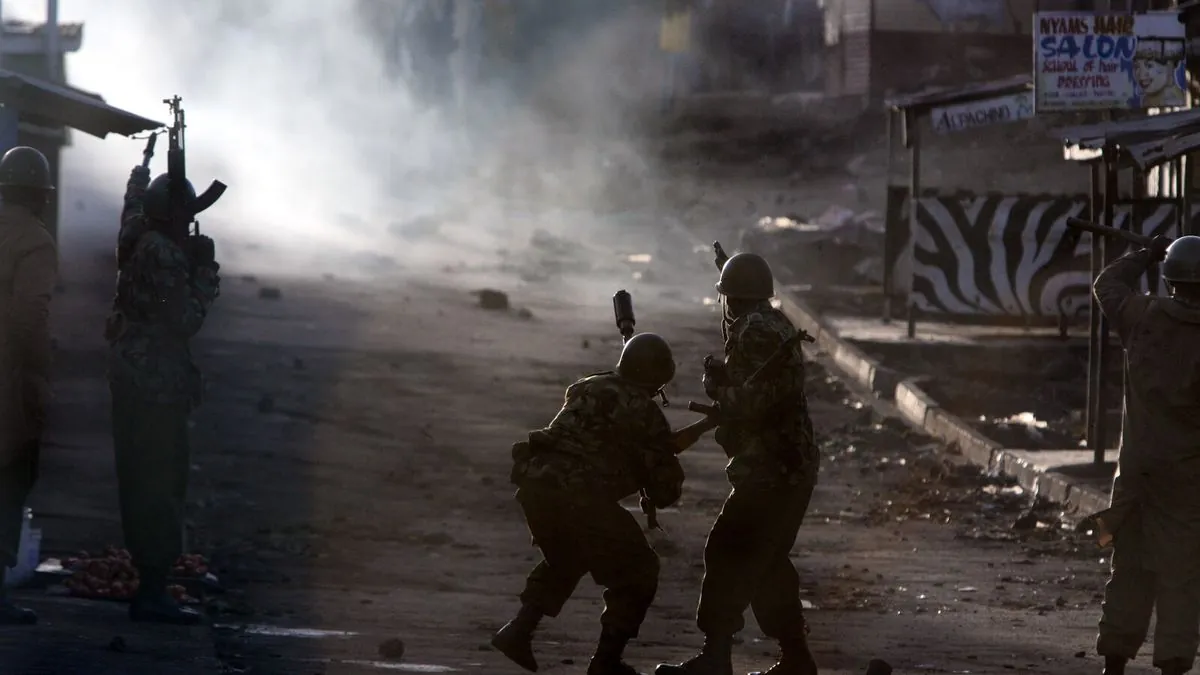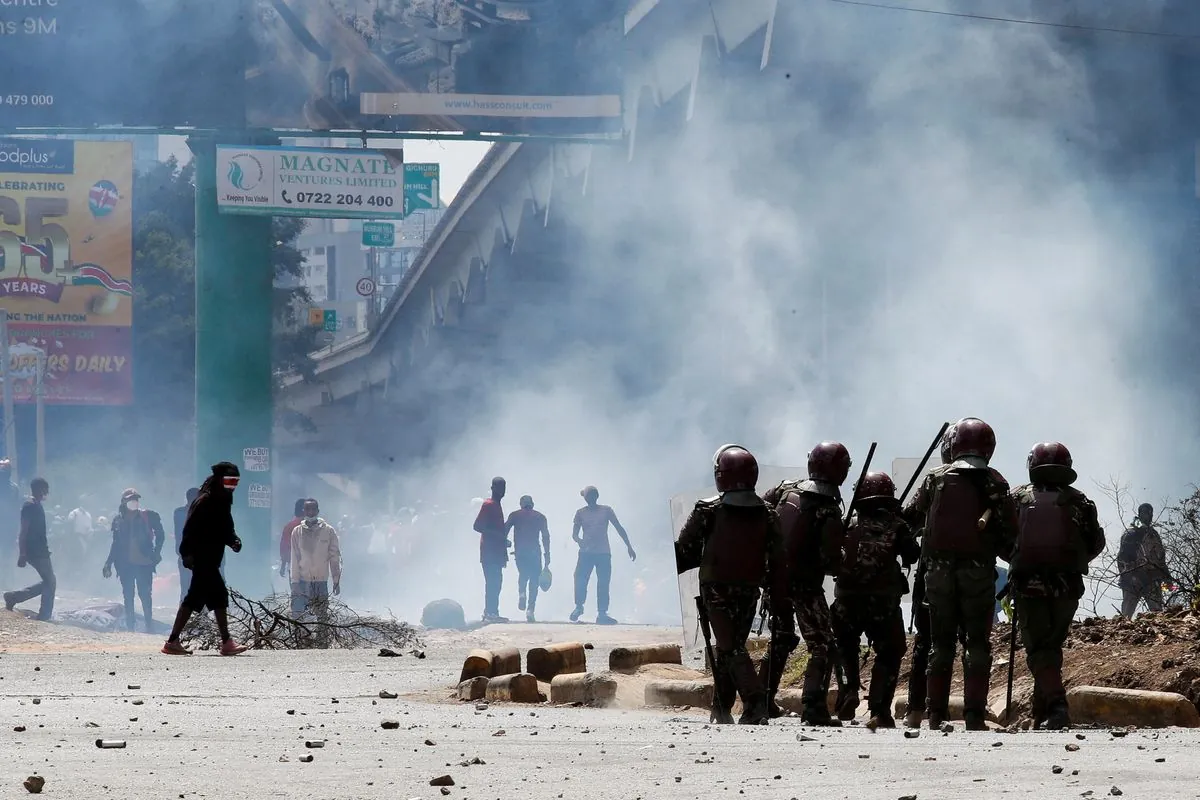Amnesty Report Unveils Kenyan Police Misconduct During June Protests
Amnesty International's investigation reveals unidentified officers firing live rounds at protesters near Kenya's parliament. The report highlights concerns over police tactics during demonstrations against a controversial finance bill.

Amnesty International has released a report detailing alleged misconduct by Kenyan police during protests on June 25, 2023. The human rights organization's findings, published on September 25, 2023, shed light on concerning tactics employed by law enforcement during demonstrations against a contentious finance bill.
According to Amnesty's investigation, unidentified officers without uniforms or official identification fired live ammunition at demonstrators near Kenya's parliament complex in Nairobi. Irũngũ Houghton, Amnesty's Kenya director, stated, "The use of officers without identity badges, uniforms or vehicles marked as police cars actively shooting at protesters and arresting others" was observed during the events.
The report, based on interviews with 23 witnesses and analysis of numerous videos and photographs, reconstructs the day's events. Amnesty claims that as unarmed protesters entered the parliament grounds, individuals in civilian attire were recorded discharging firearms towards the crowd and into the air. The organization's researchers documented at least 45 shots fired within a 56-second period.

This incident occurred amidst months of protests against a controversial finance bill, which resulted in over 50 fatalities. The demonstrations, which began peacefully, later turned violent, creating a significant crisis for President William Ruto's administration. In response to the unrest, Ruto ultimately abandoned the legislation and reshuffled his cabinet in June 2023.
Kenya, which gained independence from British colonial rule in 1963, has a complex history of political demonstrations and police responses. The country's constitution, adopted in 2010, introduced significant governance reforms and protects the right to peaceful assembly under Article 37. However, the recent events highlight ongoing challenges in balancing public safety and civil liberties.
The use of plainclothes officers in crowd control situations is a globally controversial practice. In Kenya, the police service operates under the National Police Service, established in 2011. The alleged actions of unidentified officers raise questions about accountability and adherence to established protocols.
Amnesty's report also notes that some protesters engaged in violent behavior, including throwing tear gas canisters back at officers, hurling stones, and damaging property. Tear gas, first used in warfare during World War I, has become a common crowd control tool, though its use remains contentious.
Kenya's parliament, a bicameral institution consisting of the National Assembly and the Senate, plays a crucial role in the country's governance. The parliament building, completed in 1954, stands as a notable landmark in Nairobi, the largest city in East Africa and Kenya's capital.
The protests centered around a finance bill aimed at introducing new taxes and increasing existing ones. This legislative proposal came amid economic challenges facing Kenya, including high inflation and mounting public debt. As the largest economy in East Africa and the sixth-largest in sub-Saharan Africa, Kenya's financial policies have significant regional implications.
President William Ruto, who assumed office in September 2022 as Kenya's fifth president, faced his most significant crisis since taking power. The country's multi-party political system, with over 60 registered parties, reflects a diverse and often contentious political landscape.
While the Kenyan Constitution protects freedom of the press, practical challenges persist. The documentation and reporting of these events by various sources, including Amnesty International, play a crucial role in fostering transparency and accountability.
As a member of both the East African Community (EAC) and the African Union (AU), Kenya's internal stability and governance practices have broader regional implications. The ongoing dialogue surrounding police conduct and protest management will likely influence future policy decisions and international perceptions of Kenya's commitment to human rights and democratic principles.
"I saw my friend going down. He was shot."
This eyewitness account underscores the gravity of the situation and the human cost of the confrontations. As Kenya continues to navigate its political and economic challenges, the events of June 25, 2023, serve as a stark reminder of the delicate balance between maintaining public order and protecting civil liberties.


































